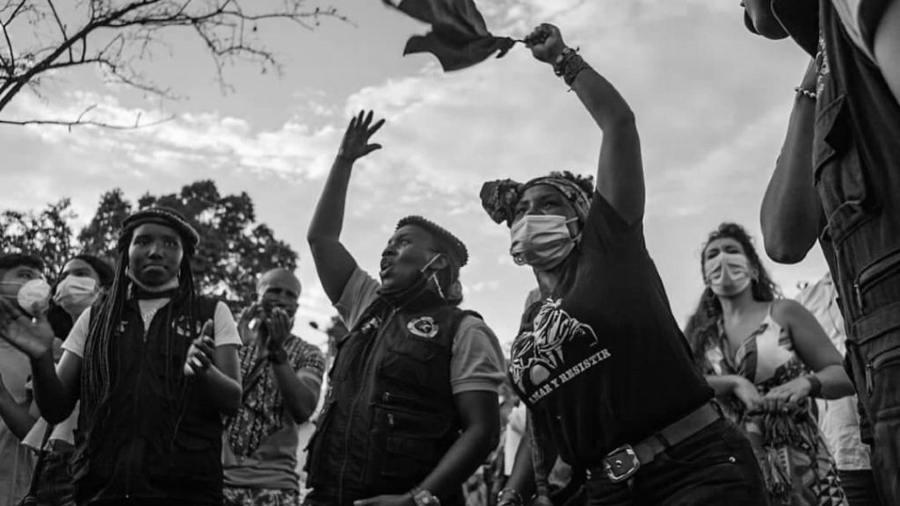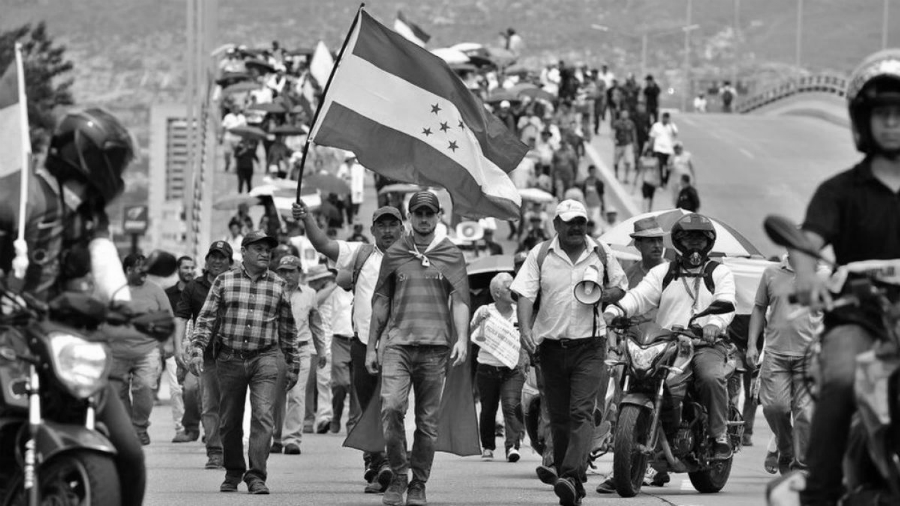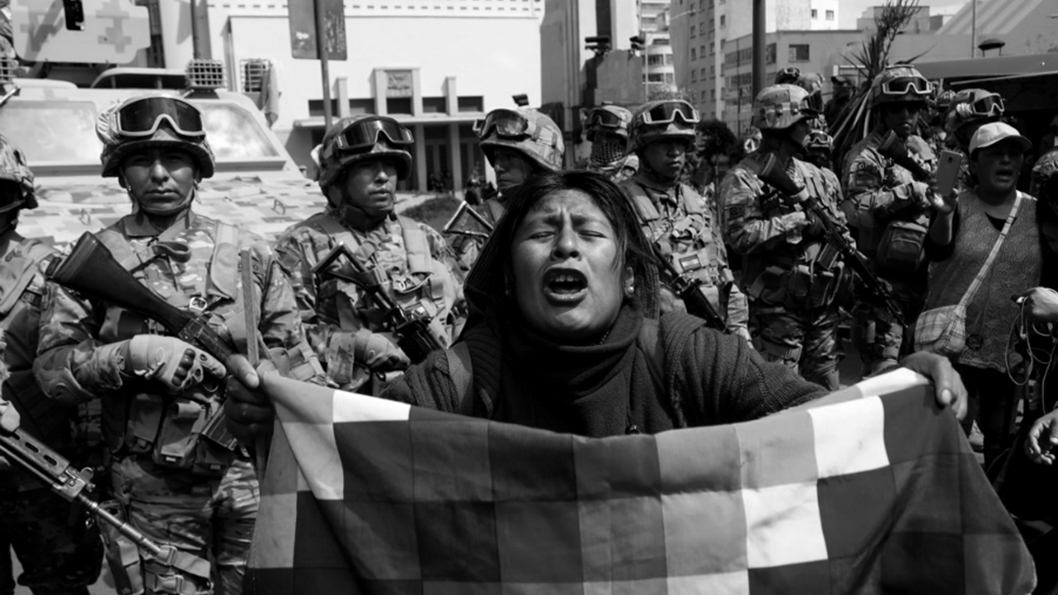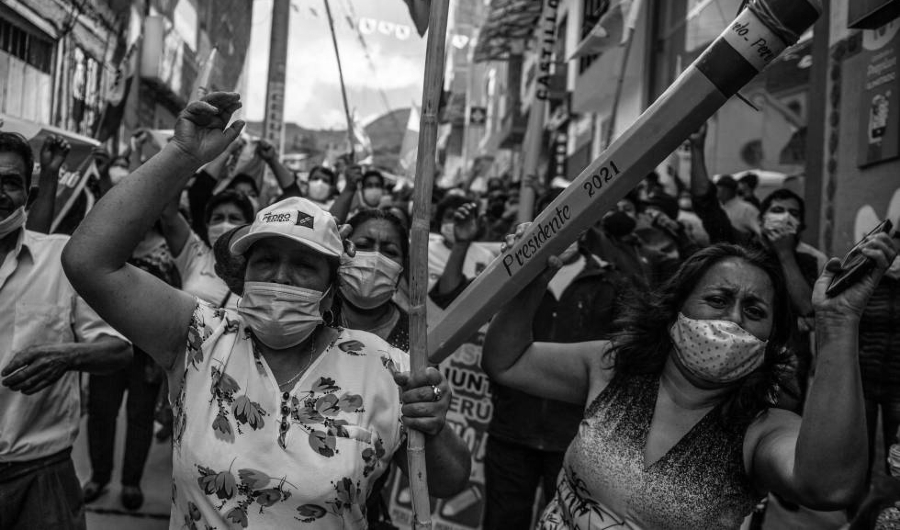Javier Tolcachier
 Celebrating and reflecting are two actions that do not usually go hand in hand. Celebration implies an achievement, even if it is only the satisfaction of something well done, while reflection usually accompanies failure or error.
Celebrating and reflecting are two actions that do not usually go hand in hand. Celebration implies an achievement, even if it is only the satisfaction of something well done, while reflection usually accompanies failure or error.
Much more so in political terms, since it is not the euphoria of triumph but defeat that most strongly invites us to meditate in depth on the currents that underlie the external scene of each event.
However, the vertigo of the times places the challenges to come almost simultaneously with the glories of the present, so it is worthwhile to add to the joys derived from achieved objectives the analysis of possible horizons.
Before doing so, it is worth asking whether there is really anything to celebrate in the midst of a dreadful pandemic, growing inequality, acute environmental deterioration or the persistence of discrimination and violence in its various forms.
The answer is yes, because broadening social awareness of the need to transform these situations is central to their realization. There may not be unanimity or full understanding of the factors that motivate the worsening of living conditions, but social mobilization for alternatives for change is clearly becoming stronger and more determined.

Celebration of political triumphs
During this year, the important and unexpected triumph of a rural teacher in the Peruvian elections, together with the resounding success of Xiomara Castro in Honduras, constitute two clear conquests of the common people against the dictatorship of local oligarchies installed with the approval of the geopolitical strategy of dominance of the United States.
Likewise, the victory of a broad popular movement in Chile over the attempted restoration of Pinochet’s fascism is the finishing touch to the electoral year.
The only thing that remains to be regretted is the setback suffered by the representative of the Citizen Revolution in Ecuador against the power of the banks, an event where political persecution, intentional disinformation and external interference were decisive agents in the outcome.
Along with these key moments, there were also other relevant events at the ballot box, such as the resounding but controversial reelection of Ortega in Nicaragua, the massive superiority of the Bolivarian forces in the regional elections in Venezuela and the regrettable advance of the opposition in the legislative elections in Argentina.
Also relevant have been the independence of Barbados from the still present British colonialism in the Caribbean, the extended National Strike in Colombia, the mobilizations in hundreds of cities in Brazil and the demonstrations of popular strength in the face of reactionary attacks in Bolivia and Cuba.
At a general level, the protagonism of a new generation, of women and of multiple social movements as actors determined to confront a plutocracy of graying men, representatives of a calloused political form, is noteworthy.
In the context of a systemic crisis of terminal proportions and in the face of this innovative “rebellion of the masses” with a young and feminine face, but also plurinational, territorial, with a strong sense of environmentalism and against all forms of discrimination, the established powers are defending themselves with various stratagems, such as the green and digital reconversion of capitalism or anachronistic and ultraconservative options.
In short, the new world is already appearing and the monsters are no longer those of the Gramscian chiaroscuro, but the manifest resistance of the old power that refuses to yield.

Reflection on power
The joy is, in these circumstances, for having prevented in several places that old de facto power from also having the formal reins of the State as a simple extension of its appetite for accumulation and preservation of privileges.
Even so, it is clear that the mere governmental executive power does not guarantee in the least effective governability and the possibility of undertaking programs favorable to popular demands.
It is therefore necessary to identify the sources from which the obstructive power emanates in order to deactivate its influence.
Undoubtedly, without being its ultimate instance, power acts manifestly on different institutional levers to exercise its veto capacity. Among these are constitutional texts, laws and the co-optation of their interpreters, the hermetic judicial enclave over which the people have (with honorable exceptions) no elective power whatsoever.
In the same way, the media of concentrated ownership daily and omnipresently construct the scenarios on which the illegitimate ambitions of the particular power over the whole are affirmed, while various armed forces act as carcinogens of that imposed order.
The factor that gives consistency and direction to this nefarious framework is capital, today financial, multinational, unproductive and highly concentrated, which must be held primarily responsible for the calamitous state of affairs.

The need for a multidimensional democracy
In view of the above description, traditional liberal democracy, which served the bourgeois ascendancy in the 18th century in the face of the tripartite colonial regime of crowned heads, aristocracy and clergy, is insufficient today for social growth.
It is therefore not at all accidental that U.S. imperialism, heir and manager of colonial power in capitalist hands, identifies itself with the imposition of this type of democracy, which does not even have full force in its own country.
A new concept and a new practice of democracy must be consolidated: a multidimensional democracy, which allows the intimate structures in which the concentrating, anti-popular and neocolonial impulse subsists to take on other characteristics or simply be supplanted.
The main attribute of a multidimensional, real and structural democracy is the equitable distribution of power in all its instances, be they institutional, communicational, economic, gender or of any other kind.
In strictly political terms, active, protagonist and permanent popular participation is essential, in the direction of a decentralized and federative self-government that contemplates gender and generational parities together with a well-oiled elective and consultative mechanism that allows effective incidence and compliance with the agreements reached.
It is obvious that such participation will be favored by the democratization of the economic instance, which by means of universal income should facilitate the distribution of social resources in order to abandon an existence of “forced labor”.
Likewise, the strengthening of the plurality of the informative narrative is key. To this end, an alliance between the State and the community communication sector -close from its origins and in its daily practice to the vital needs of the population- can contribute with the declared objective of leveling the enormous power that media corporations currently have over public opinion.
A strong critical literacy on digital environments and the regulation of their now omnipresent action will be essential elements for a re-democratization of the Internet, initially designed to facilitate unrestricted access to knowledge, a paradigm now undermined by commercial interests.
In this context of social evolution, we can imagine the disarmament and the proportional and progressive demilitarization of the world, as well as the gradual dissolution of police forces, whose degraded practice, instead of protecting the integrity of citizens, today serves more for the repression of the poor, the youth, political dissidence, or is often in open connivance with criminal sectors.
These are just a few examples to illustrate the concept of democratic multidimensionality, which are only intended to call for reflection and collective input on future models of social organization.
Accordingly, the good performance of a government – especially a progressive or revolutionary government – can be evaluated in the light of the growth of democracy in the different social dimensions and not only in institutional terms or in terms of improvement in living conditions, which in itself is a first and unavoidable condition.

The challenge is threefold
Consequently, the challenge of social and political organization becomes a triple objective. On the one hand, coining the necessary conjunctural unity from the convergence of diversity, to prevent local and international concentrated power from using the pulleys of state institutionality for its own benefit and to the general detriment.
On the other hand, to design models of power distribution in each sphere. Distribution that will be more or less expeditious, more or less radical or progressive, revolutionary or progressive, depending on the relationship of forces existing at the time of its application. The mere analysis of recent history allows us to clearly observe the opportunity of each action, the depth of which is usually related to the magnitude of the crisis suffered by the population beforehand.
Finally, and of fundamental importance, is the collective transformation in the field of subjectivity, in the field of values that give direction and meaning to individual and common existence, an aspect that is crucial to provide coherence and allow the changes that could be achieved on the social surface to take lasting roots.
If possession, appropriation and denial of the intention of others continue to be the common currency, it will be difficult to aspire to a society of solidarity, collaboration and growing freedom for all.
A new sense of personal and social life, tending towards humanization and overcoming pain and suffering in ourselves and those around us, summons us.
Javier Tolcachier is a researcher at the World Center for Humanist Studies and communicator at Pressenza, an international news agency with a non-violent approach.